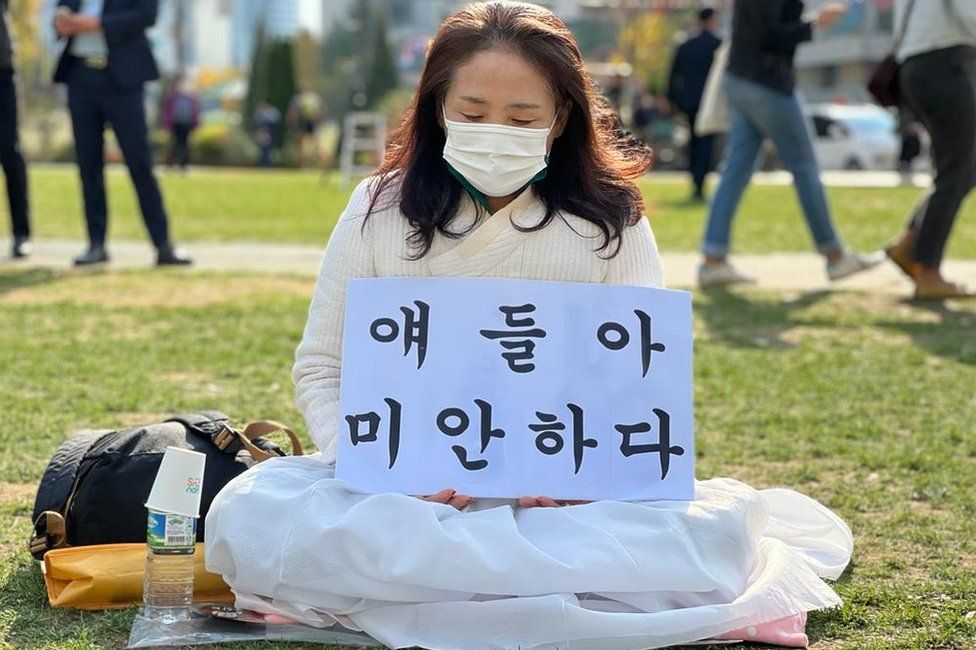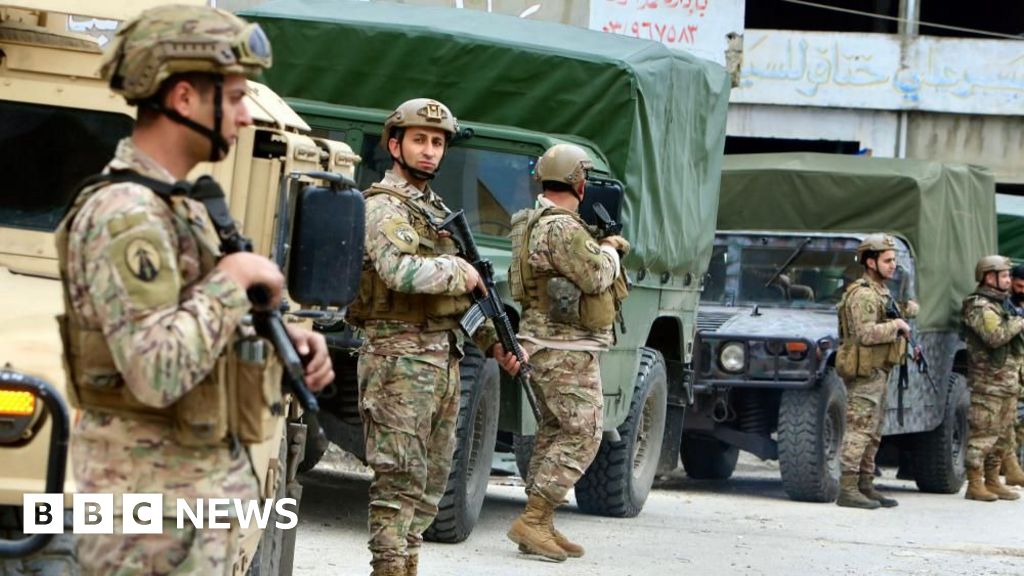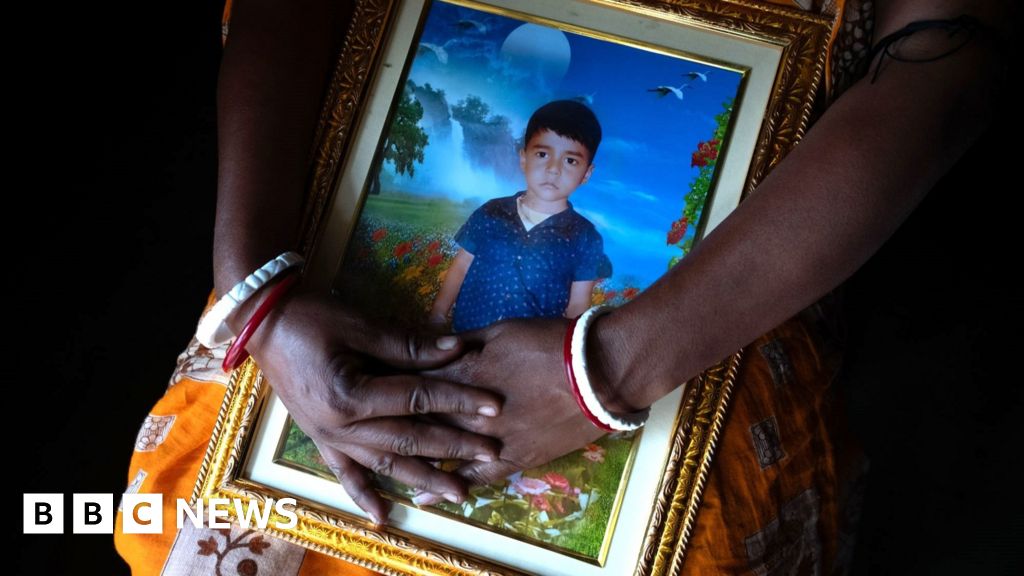ARTICLE AD BOX

Lee Insook was among thousands who flocked to altars at City Hall
By Tessa Wong & Youmi Kim
BBC News, Seoul
On a bright and cloudless October afternoon, Lee Insook marched into a grassy field in the middle of Seoul, sat down, and began to wail.
Clutching a handmade sign that said "I'm so sorry, guys", she directed her piercing cries at a large stage covered in flowers - a public altar honouring the many young lives lost in Saturday night's Itaewon crush.
She was one of thousands of Seoul residents who flocked to the altar at City Hall on Monday, as the capital struggled with grief and anger over the disaster - the worst the country has seen since 2014, when the Sewol ferry sank, killing more than 300 people.
Solemnly, they queued up - families with young children, office workers, housewives and retirees. Organisers handed out stalks of white chrysanthemums, a symbol of grief in South Korea, which the mourners laid at the altar with deep bows.
Some murmured prayers. Others cried.
A few kilometres away at the scene of the disaster in Itaewon, hundreds also gathered to lay bouquets of chrysanthemums. Among them were small bottles of soju, a popular alcoholic drink. It was an offering to the dead so that their spirits could enjoy one last drink.
Jung Chankyung, a housewife from Gimpo, a neighbourhood outside Seoul, travelled more than an hour to reach the heart of the capital to pay her respects.
Watching scenes of the tragedy on the news "just felt unreal, so heartbreaking and shocking", she said, her eyes brimming with tears. "I called my children to make sure they were safe."
Many of those who turned up at City Hall were young - in their 20s, like Kim Min-jeong.
"It's quite surprising. I feel really sad because the victims are my age, so many are women too. I think a lack of control probably caused [this]," she said.
Of the 154 who died, 98 were women and 56 were men. There is speculation that women died in greater numbers because they are smaller and found it harder to muscle their way up to breathe or make their way out of the crowd.
For Koo Jaehoon, it was a close call. The 29-year-old Itaewon regular wanted to head down there to party on Saturday night, but decided against it at the last minute when he heard it was getting crowded.
Image source, Reuters
Image caption,White chrysanthemums and bottles of soju have been left at the scene of the disaster in Itaewon
"I don't feel lucky. I feel sad… actually I have visited the alley many times, it was where I met friends, smoked, talked and waited in line [to get into pubs].
"If there's somebody responsible, this person must be punished. But I don't want people to debate the lack of police force and lack of public order right now… I want people to have the time to grieve."
But others have begun asking questions. While it is not yet clear how the crush began, accusations have been levelled against the authorities, saying they could have done more to prevent what many believe was an entirely avoidable disaster.
South Korean Prime Minister Han Duck-soo has promised a thorough investigation to "make necessary institutional changes so that such an accident is not repeated".
But Korean media have pointed out that just two weeks earlier, a concert by K-pop superstars BTS in the southern city of Busan attended by 55,000 fans was manned by 2,700 security officers. In contrast, only 137 officers in Seoul were deployed to Itaewon on Saturday night to manage a crowd that ran into thousands in the first mask-free Halloween event since Covid.
Authorities have said they deployed more people this year than they did for pre-Covid parties, and that they had to redirect a considerable number of officers elsewhere in Seoul that night to handle potential protests.
But round the corner from City Hall, a local labour union has wasted no time in making their point. Prominent black banners read: "The right to be safe is the basic right of all citizens. There is no other value to be prioritised than the lives of people and their safety."
On the grassy field, Lee Insook was livid. "This is a human disaster, it wouldn't have happened if the government had controlled public order. The government is responsible for this. The older generation is also responsible, they have voted wrongly.
"It's unbelievable this could have happened here in South Korea, a developed country… I am here because all South Korean young people should live in a safe, fair and peaceful place," said Lee Insook, who's a grandmother.
Powered by fury, her grief was contagious - as she wailed, an older woman near her started sobbing spontaneously, then bowed deeply to her.
She went to comfort Lee Insook, as did a man who held her shoulder. But Lee Insook angrily shook them off - she needed to grieve, she insisted.
"It's our fault they died!" she cried out.

 2 years ago
21
2 years ago
21








 English (US) ·
English (US) ·